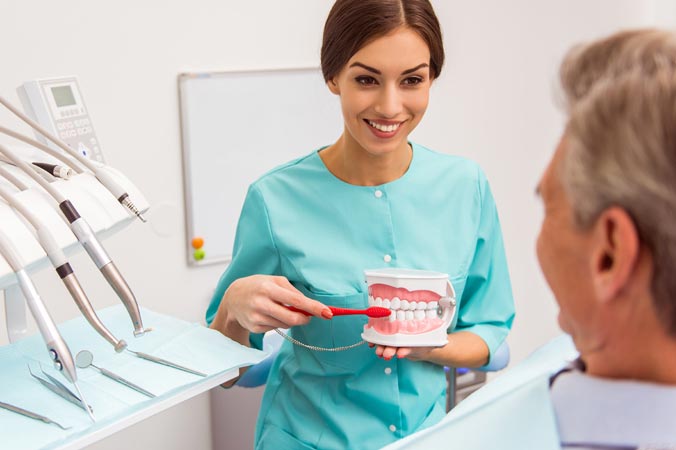
Top Tips for Denture Care
Over 40 percent of Australians over 65 have dentures. Age, wear and tear, and poor oral hygiene can see the need for dentures to replace lost or damaged teeth. Once you have them, that doesn’t mean you no longer have to care for them. Your natural teeth may be gone, but that’s not the end of your brushing routine. Below, we cover some dentist tips and advice on how to care for your dentures.
Stay on Top of Dental Treatment
You may not need to worry about cavities with dentures, but that doesn’t mean they don’t fall victim to some of the same problems as your natural teeth. Toothpaste can be abrasive, which means small scratches can form on your dentures. Once that happens, they can be susceptible to stains and wear and tear. Always follow a strict oral care regime, but see your dentist regularly as well.
At Dental O So Gentle, they will inform you how often you will need to see them for professional cleans and to help achieve a proper fit. If your dentures are loose or uncomfortable, seek dental care immediately.
Clean Them Thoroughly
Dentures require the same level of care as your natural teeth – and even more so in some cases. Make sure you remove and rinse them after you eat food. Run them underwater and handle them with care. Use a soft-bristled brush and a non-abrasive denture cleaner. Do not use the cleaning solution inside your mouth. Once you finish with a denture cleaner, rinse the dentures thoroughly before putting them in your mouth.
Soak Overnight
Did you know that dentures can lose their shape if you don’t keep them moist? Soak them in a glass of water or denture solution when you go to bed. Talk to your dentist if you need any help or advice on the best storage method for your dentures to keep them in the best condition.
What Not to Use on Your Dentures
Most people know that sugar is bad for teeth, but what could be bad for dentures? Believe it or not, there are many things that you may like to avoid doing and using. The first is hot or boiling water. Water at high temperatures can warp your dentures and can result in significant repair costs or a full replacement. Stiff-bristled brushes, abrasive cleaners, and harsh toothpaste can also be to blame for damage.
If you notice that your dentures are starting to look a little yellow, you may decide to buy a whitening toothpaste to fix the problem. However, these toothpastes do little to change the colour of dentures, but the peroxide can be damaging. Any bleaching products can also tarnish metal parts and weaken the dentures as well.
Dentures require as much care as natural teeth, and even more so in many cases. If you’re not sure how to keep your dentures in perfect condition, talk to your dentist.
